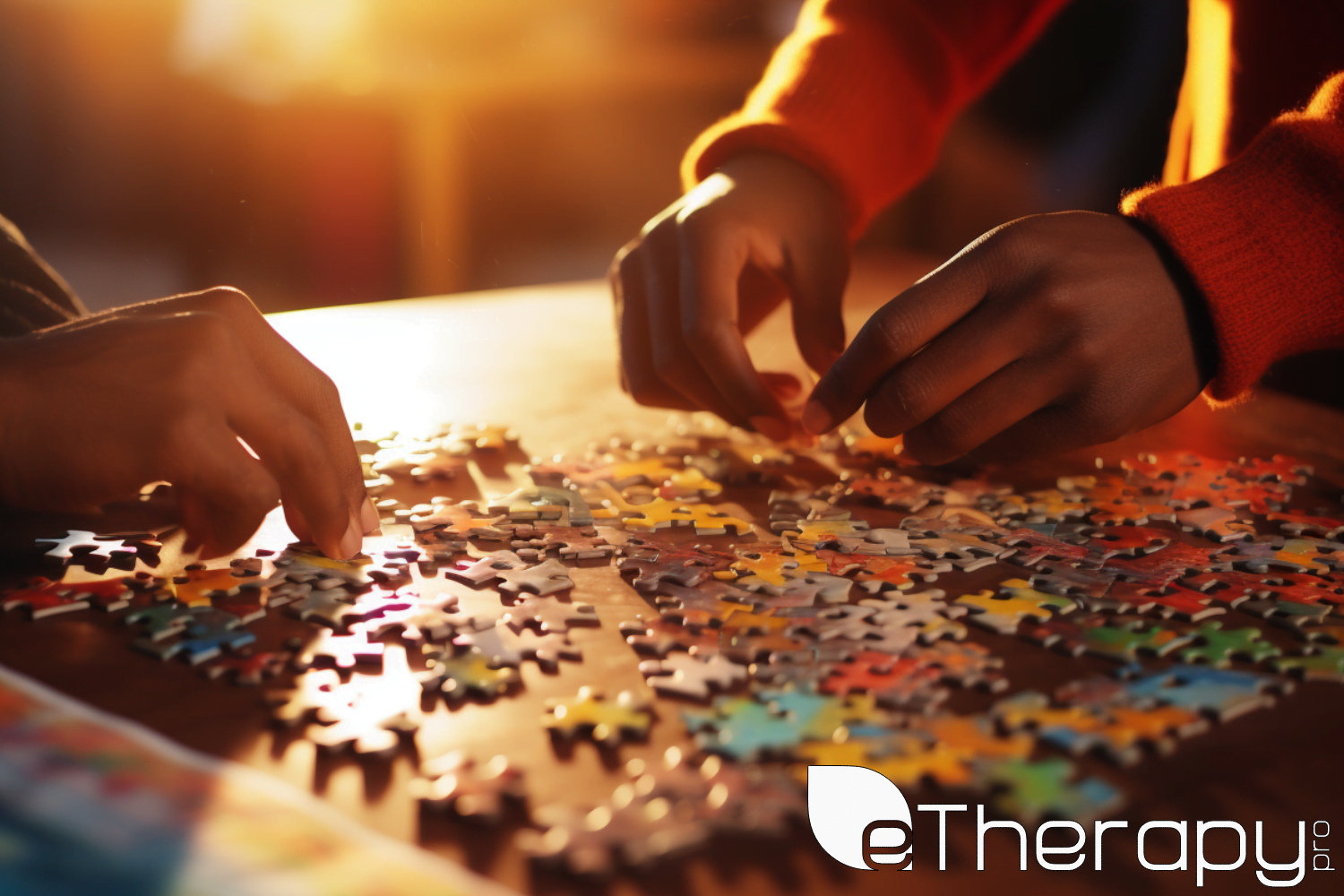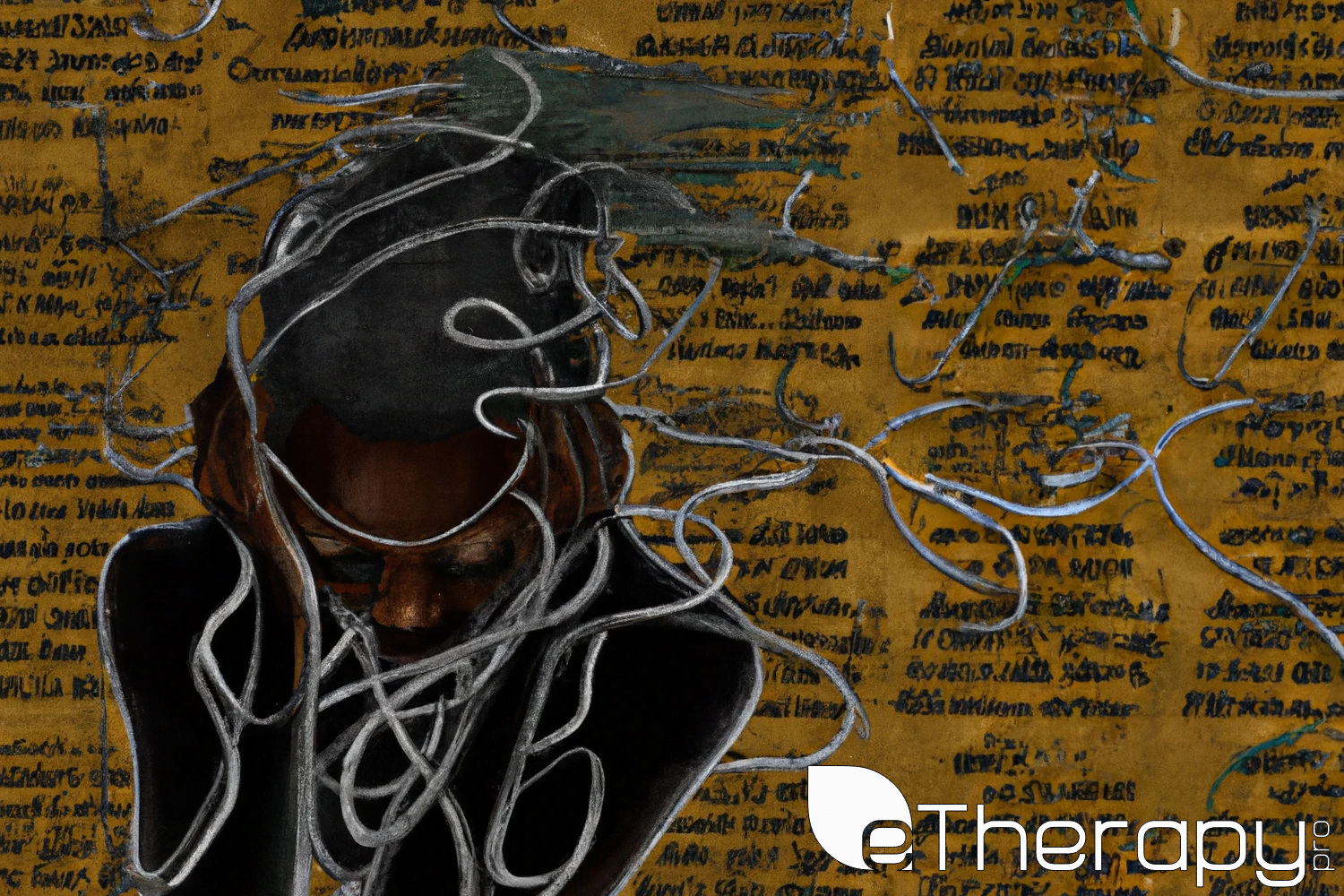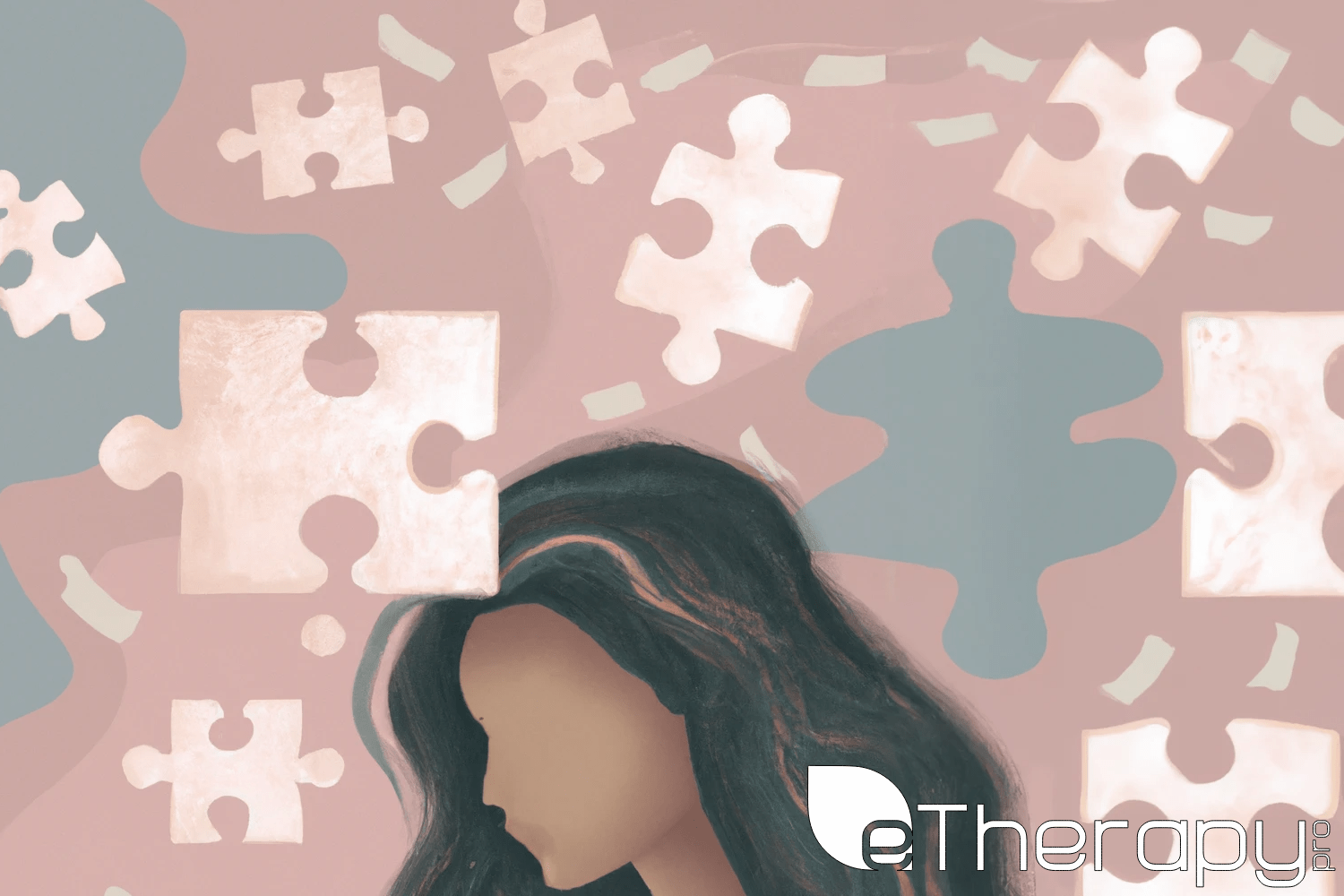 Relationships. They’re a beautiful puzzle, aren’t they? Sometimes they fit perfectly, and at other times, we find ourselves jamming pieces where they don’t belong. Amidst the wide spectrum of relationships, there lies an area where love and care blend, sometimes muddling into what experts term ‘codependency in relationships’. But what does that mean? And is every challenging relationship toxic, or is it merely navigating the choppy waters of codependency?
Relationships. They’re a beautiful puzzle, aren’t they? Sometimes they fit perfectly, and at other times, we find ourselves jamming pieces where they don’t belong. Amidst the wide spectrum of relationships, there lies an area where love and care blend, sometimes muddling into what experts term ‘codependency in relationships’. But what does that mean? And is every challenging relationship toxic, or is it merely navigating the choppy waters of codependency?
The first step towards getting somewhere is to decide you’re not going to stay where you are. – J.P. Morgan
Have you ever been in a relationship where you felt trapped? Not because there’s a villain and a victim, but because there’s a bond so intense that imagining life without the other person seems impossible? If this sparks a sense of recognition, you’re not alone. Many, in their journey of love and care, inadvertently step into the realm of excessive reliance.
In this article, we’ll venture deep into the realm of codependency in relationships, a term that often creates confusion and concern. While there’s a thin line between caring deeply and becoming codependent, recognizing and understanding this line is crucial. Why? Because it’s not just about labels; it’s about finding balance, happiness, and genuine connection in our relationships.
Understanding Codependency in Relationships
Codependency isn’t just a buzzword you overhear in TV dramas or at coffee meet-ups. It’s a concept rooted in history and has evolved, like many other terms in psychology, as our understanding of human relationships has grown.
The term ‘codependency’ originally popped up in the context of people living with individuals battling alcohol addiction. Back in the day, it described those who were in some way dependent on the addicted person’s behavior. Think of it like a dance: if one person sways, the other has to move too. But as time moved on, the understanding of this term shifted and expanded.
Today, codependency covers a wider range of emotional and behavioral challenges. It’s not just about addiction. It’s about patterns. It’s how we, sometimes unknowingly, entangle our self-worth, desires, and even daily choices with another person.
Codependency In Relationships vs. Care In Relationships
Everyone cares, right? We’re built that way. From sharing your sandwich with a school friend to lending a listening ear to a heartbroken buddy, caring is natural. But where does one draw the line between genuine care and stepping into the muddy waters of codependency?
Imagine Sarah, who cancels her own doctor’s appointment to make sure she’s there for her friend’s minor haircut appointment. Or think of Mark, who can’t decide what movie to watch unless his partner picks first. While these might sound like acts of love, they’re also hints of losing one’s own identity and needs in the whirlwind of another’s desires.
Real care strengthens and empowers both parties in a relationship. Codependency, on the other hand, might feel like care, but it often comes at the cost of one’s well-being and self-identity. The trick is recognizing which side of the line we’re dancing on and understanding that it’s okay to prioritize our own needs and emotions too.
The Underpinnings of Codependency
So, where does codependency start its sneaky crawl into our relationships? It’s like trying to find the starting point of a maze. To understand this, we’ve got to dig a bit, past the surface, into the foundations of our minds.
Our brains are like sponges, especially when we’re little. The way we’re raised, the attachment styles we develop, and those early childhood experiences shape a lot about how we relate to others when we grow up. Think of it as building blocks. If some blocks are misplaced early on, the tower might lean a particular way.
There’s a theory in psychology
There’s a theory in psychology that talks about “attachment styles.” Some folks are securely attached, meaning they grew up feeling safe and loved. Others might be anxiously attached, always worried about being left, or avoidantly attached, ducking away from closeness. These styles, formed during our kiddo years, play a big role in how we form relationships as adults.
And then there’s a sprinkle of evolutionary psychology. Back in the caveman days, sticking together was vital – it meant survival. So, it makes sense that our brains are wired to bond deeply with others. But like everything, sometimes, this wiring can go a little overboard.
The meeting of two personalities is like the contact of two chemical substances: if there is any reaction, both are transformed. – Carl Jung
Carl Jung’s quote rings true. When two people meet, there’s often change. Think of it like mixing two colors of paint. Each color influences the other, creating something new. But sometimes, if one color is super dominant or the mix isn’t quite right, it can overshadow or change the other more than intended. That’s where the transformation Jung spoke about can sometimes spiral into codependency.
In essence, codependency isn’t just a random event. It’s a mix of our past, our brain’s wiring, and the unique dance of two personalities coming together.

Is Your Relationship Toxic or Just Codependent?
Navigating the intricate web of relationships often means coming across terms that make us question: Where does our bond stand? ‘Toxic’ and ‘codependent’ are two such terms that might seem interchangeable but have nuances worth understanding. Let’s delve into the differences and explore their signs.
Recognizing the Signs
Relationship dynamics can be tricky. Recognizing the underlying patterns can help us avoid misunderstanding and lead to better clarity.
Codependent Relationship:
- The Savior Complex: This is when one person feels an overwhelming need to “rescue” or “save” their partner from their problems. Think of Alex, always rushing to fix issues for Jamie, even if Jamie didn’t ask. Alex feels wholly responsible for Jamie’s happiness, often sidelining their own needs.
- Lost Individuality: Here, one partner loses their sense of self and adopts the interests and needs of the other. Remember Carol, who once cherished her painting sessions? She gave them up entirely because Steve wasn’t into art, resulting in her interests blending wholly with Steve’s.
Toxic Relationship:
- Control and Manipulation: This dynamic revolves around exerting power and influence over the partner’s actions and decisions. Take Lisa, for example, who feels obligated to update Tom every hour. Tom says it’s for her safety, but in reality, he craves control.
- Constant Criticism: This involves perpetually finding faults or shortcomings in the partner. Consider John, who always criticizes Emily for everything, from her laughter to her movie choices. Over time, Emily’s self-worth dwindles.
While both dynamics can be distressing, they stem from distinct sources. Codependency often arises from a place of genuine concern, translating into excessive catering to the other’s needs. Toxicity, however, thrives on power imbalances, with one partner aiming to dominate or belittle the other.
Beyond The Labels
Labels can provide insights, but they’re just the starting point. More than identifying the nature of the relationship, it’s about understanding its intricacies and working towards harmony.
Every bond, like every individual, is unique. Spotting shades of codependency or toxicity in your relationship? Communication remains key. And if things seem too tangled, seeking clarity becomes essential. If you ever feel stuck or uncertain about the kind of relationship you’re in, considering professional help, like from eTherapyPro, can be a valuable step forward.
The Role of Childhood Trauma
The tapestry of our adult relationships often finds its threads originating from the early days of our lives. Many of the patterns, behaviors, and tendencies we exhibit can be traced back to moments, experiences, and observations from our childhood. Whether these memories are vivid or hidden in the recesses of our minds, they exert an influence that cannot be understated.
Formative Influences in Childhood
Childhood is a sensitive phase, a time when our brain is like soft clay, easily molded by experiences and observations. It’s during these formative years that the bedrock of our emotional and relational understanding is laid. Every interaction, every witnessed behavior, and every felt emotion can create ripples that last well into our adult years.
Ancestral Echoes
Beyond direct experiences, the family environment and observed dynamics play a profound role in shaping our relational blueprint. For instance, Sarah, who saw her mother constantly sideline her own needs, might unknowingly adopt a similar behavior, equating it with love. Similarly, Alex’s experiences with an absentee parent could sow seeds of abandonment issues, manifesting in his later relationships as an intense need for validation.
These inherited patterns, or ancestral echoes, influence how we approach love, care, and attachment. Some may guide us toward nurturing relationships, while others might steer us into the murky waters of codependency.
Realizing and acknowledging these influences is crucial. By identifying these strings from the past, we can choose whether to be governed by them or carve a new narrative. And if the past feels too tangled, professional guidance, like what’s offered by eTherapyPro, can be a beacon, illuminating the path to healthier relationship dynamics.
Emotional Dependency: A Double-Edged Sword
Our relationships, especially the ones formed during our early years, serve as the foundation of our emotional makeup. Reflecting on childhood experiences, we can identify specific patterns that lead to co-dependence in adulthood:
Overprotective Parents:
A child whose every step is monitored and every choice pre-decided may never learn the art of decision-making. They grow up feeling protected under the umbrella of their parent’s choices, but this can make them overly reliant on others in adulthood. This reliance often isn’t just emotional but can translate to an inability to make even mundane decisions without seeking approval or validation.
Consistent Need for Affirmation:
Children growing up in households where they felt unseen or unheard often chase affirmation in their adult relationships. If they felt their achievements went unnoticed or their feelings unacknowledged, they might become adults who continually seek acknowledgment, often tying their self-worth to it.
Being the Family Mediator:
Children who often find themselves playing the role of the mediator in family disputes can grow up feeling responsible for the emotional well-being of those around them. This can result in an adult who prioritizes others’ feelings over their own, leading to neglect of their emotional needs.
Direct consequences of such childhood patterns often manifest in co-dependent behaviors in adulthood:
- Reluctance to Make Decisions: Due to a fear of making mistakes, individuals might procrastinate or avoid decision-making altogether, often letting others decide for them.
- Constant Need for Reassurance: This can lead to an unhealthy reliance on partners or friends for affirmation, tying their self-worth to the validation they receive.
- Feeling Helpless: Without having learned the skills to face challenges independently, co-dependent individuals might often feel overwhelmed by life’s adversities.
- Avoidance of Conflict: They might avoid confrontations or disagreements, fearing the loss of the relationship, leading to suppression of their feelings and needs.
The intertwining of emotions is like a dance. While it can lead to profound connections, it’s vital to remember the importance of dancing to one’s tune while harmonizing with others. Recognizing the consequences of co-dependency and tracing back their origins is the first step in crafting a balanced emotional dance.
Balance in Bonding
Being deeply connected to someone doesn’t mean losing oneself. Emotional dependency can be a double-edged sword. On one hand, it enables closeness; on the other, it can lead to a stifling reliance that hinders personal growth. Here are a few tips to maintain individuality while cherishing that deep connection:
- Self-awareness: Recognize your feelings. Understand that it’s natural to want closeness, but it’s equally crucial to have time for oneself.
- Establish Boundaries: Just as a house has walls, emotional boundaries are needed in relationships. It’s okay to say no, ask for space, or prioritize your needs.
- Nurture Other Relationships: While your partner or close friend is essential, don’t forget other relationships. Spend time with family, and other friends, or engage in group activities. It helps in diversifying emotional investments.
- Self-care: Take time for activities you love. Whether it’s reading, hiking, or even a quiet day at home, ensure you’re caring for your own emotional needs.
- Seek External Perspectives: If you’re unsure about the dynamics of your relationship, sometimes an external viewpoint helps. This could be from friends, family, or professionals.
Every relationship has its ebb and flow. While it’s commendable to be attuned to a partner’s emotions, it’s vital to remember that every individual melody has its own beauty. Blending harmoniously without losing one’s unique tune is the art of balanced bonding.

Codependency in Relationships: Self-Worth’s Dance with Relationships
In the intricate ballet of human relationships, few elements influence our steps as profoundly as self-worth. Like a guiding star, our perception of ourselves can lead us either toward harmonious unions or tumultuous entanglements. How we see ourselves doesn’t just reflect in the mirror but echoes in the dynamics of our relationships.
Diving deeper, low self-esteem often becomes a breeding ground for codependency. Individuals with a diminished sense of self-worth might find themselves in relationships where they constantly seek validation, fearing that without external affirmation, they are incomplete or unlovable. They may silence their voices, diminish their desires, or even sacrifice their needs, all in the pursuit of acceptance. This doesn’t just burden the relationship but also further erodes their self-esteem in a vicious cycle.
We cultivate love when we allow our most vulnerable and powerful selves to be deeply seen and known. – Brene Brown
The Power of Self-Worth in Healthy Relationships
This profound statement unravels the essence of healthy relationships. It’s not about hiding flaws or seeking perfection but embracing vulnerability with confidence. Genuine self-worth isn’t just about recognizing our strengths but accepting our imperfections, and in doing so, we protect ourselves against the pitfalls of unhealthy relationship dynamics.
Nurturing Self-Worth for Healthy Relationships
For those seeking to break the chains of codependency and foster healthier relationships, introspection is key. Recognizing and nurturing one’s self-worth is akin to building a protective barrier, ensuring relationships are built on mutual respect and genuine connection, rather than the shaky grounds of validation seeking. If you find yourself struggling to distinguish between genuine love and an unhealthy reliance, consider seeking professional therapy services, like eTherapyPro, to help illuminate your path.
As we journey through life, it’s essential to remember that genuine love and connection stem from seeing and valuing ourselves first. Only then can we truly engage in relationships that echo the same respect and admiration?
Codependency in Relationships: Healing and Moving Forward
As we tread the path of understanding codependency, it’s clear that recovery is a blend of professional guidance, self-awareness, and a dedicated commitment to personal growth. Let’s explore the aids and techniques to lead us toward healthier relationships.
Therapy and Professional Help
The emotional maze of our past and present often demands the skilled perspective of a therapist. These professionals guide individuals through the intricate patterns established over the years, often tracing back to childhood. By providing a space of safety and trust, therapists help craft strategies for a more genuine life.
Self-help and Growth
While professional help is invaluable, personal growth is equally about the choices we make each day. A robust arsenal of resources can be the wind beneath your wings as you forge ahead. Here are some recommendations:
Books:
Codependent No More by Melody Beattie offers insights into the world of codependency and charts a path toward recovery.
Facing Codependence: What It Is, Where It Comes From, How It Sabotages Our Lives by Pia Mellody is a deep dive into the roots of codependency, presenting a comprehensive approach to understanding and overcoming it.
Self-awareness:
A journal serves as a therapeutic tool, capturing emotions and reflecting patterns over time.
Conscious Decision-making:
Pausing, especially during emotionally charged moments, is a transformative act. It’s a brief interlude that allows us to ground ourselves, sift through our emotions, and make mindful decisions. Instead of rushing to react, take a breath and ask yourself if your actions are driven by codependency. This self-check helps prevent regretful choices and strengthens your emotional intelligence. By differentiating between your authentic desires and codependent tendencies, you can reclaim your autonomy, honor your feelings, and choose a path that aligns with your true self. Each time you practice this mindful approach, you move closer to a life governed by intentional, self-aware choices.
Codependency in Relationships: Embracing the Fear, Finding the Freedom
Let’s face it: a codependent attempting to leave or change a relationship is like a caffeine addict trying to skip their morning coffee—it’s just a tad bit unthinkable. But as they say, the most transformative changes often lie just beyond our greatest fears.
The Great Escape (and its Rewards)
While it might sound like a blockbuster movie title, leaving codependency behind truly can be an adventure of its own. But what does life look like when the chains break? Spoiler: It’s vibrant.
- Boundless Independence: No more seeking constant validation. Whether it’s choosing a restaurant or buying a new shirt, decisions become personal celebrations of individuality.
- Balanced Relationships: Relationships evolve from being stress sources to becoming havens of mutual respect and genuine companionship.
- Rediscovered Self: The colors of one’s true personality emerge, brighter and bolder. Those hobbies shelved in the past? They’re back on the table.
- Elevated Self-Esteem: The mirror reflects a confident individual who knows their worth, unswayed by external opinions.
- Unparalleled Growth: With a clear mind and heart, opportunities to grow personally and professionally seem to knock more frequently.
Facing the Fear Head-On
It’s comically ironic how codependents might hold onto relationships as if they were life rafts in a stormy sea. But the secret? Calmer waters lie just ahead. Embracing the fear of change, acknowledging its existence, and then forging ahead anyway is a courageous act. And as with any act of courage, the rewards are profound.
Remember, while change is daunting, stagnation is detrimental. Choosing growth, even amidst fear, is the path to a fuller, richer life, free from the shackles of codependency. And for those moments of doubt? Well, there’s always humor to fall back on. Because after all, who knew choosing a restaurant solo could feel like a personal revolution?
Conclusion for Codependency in Relationships
As we wind our way back to the inception of our discussion, let’s revisit the quote that framed our exploration: “Is Your Relationship Toxic or Just Codependent?” We started with a pressing question, the very core of our inquiry, pondering about our relationships and the intricate dance of codependency they sometimes engage in.
The journey through the maze of understanding and grappling with codependency in relationships is personal and unique for each individual. For some, it might be a quiet realization during a moment of solitude; for others, a stormy confrontation with long-suppressed feelings. Yet, the universal truth remains: introspection is the key to unlocking a life of genuine connection, devoid of the shadows of unhealthy attachment.
We’ve ventured through the tales, the challenges, the fears, and the breakthroughs. And while the path to self-awareness and healing might be laden with hurdles, it’s a journey worth embarking upon. As we’ve seen, the freedom that lies on the other side is not just about independent decisions or reclaimed hobbies—it’s about redefining one’s entire life experience, from the mundane to the monumental.
As you stand at this crossroads, contemplating the next step, remember: your relationship with yourself sets the tone for every other relationship in your life.
Do not bring people in your life who weigh you down. And trust your instincts… good relationships feel good… – Michelle Obama
Your story, your journey, awaits. And as you flip to its next chapter, know that the most enriching relationships are those that resonate with authenticity, understanding, and mutual respect. Embrace them. Cherish them.
 Every relationship requires a certain level of give-and-take. But what happens when a relationship turns into a battlefield, where one person’s gain is considered another person’s loss? This is the essence of a zero-sum games in relationships. In this article, we’ll examine this detrimental mindset, its
Every relationship requires a certain level of give-and-take. But what happens when a relationship turns into a battlefield, where one person’s gain is considered another person’s loss? This is the essence of a zero-sum games in relationships. In this article, we’ll examine this detrimental mindset, its 




